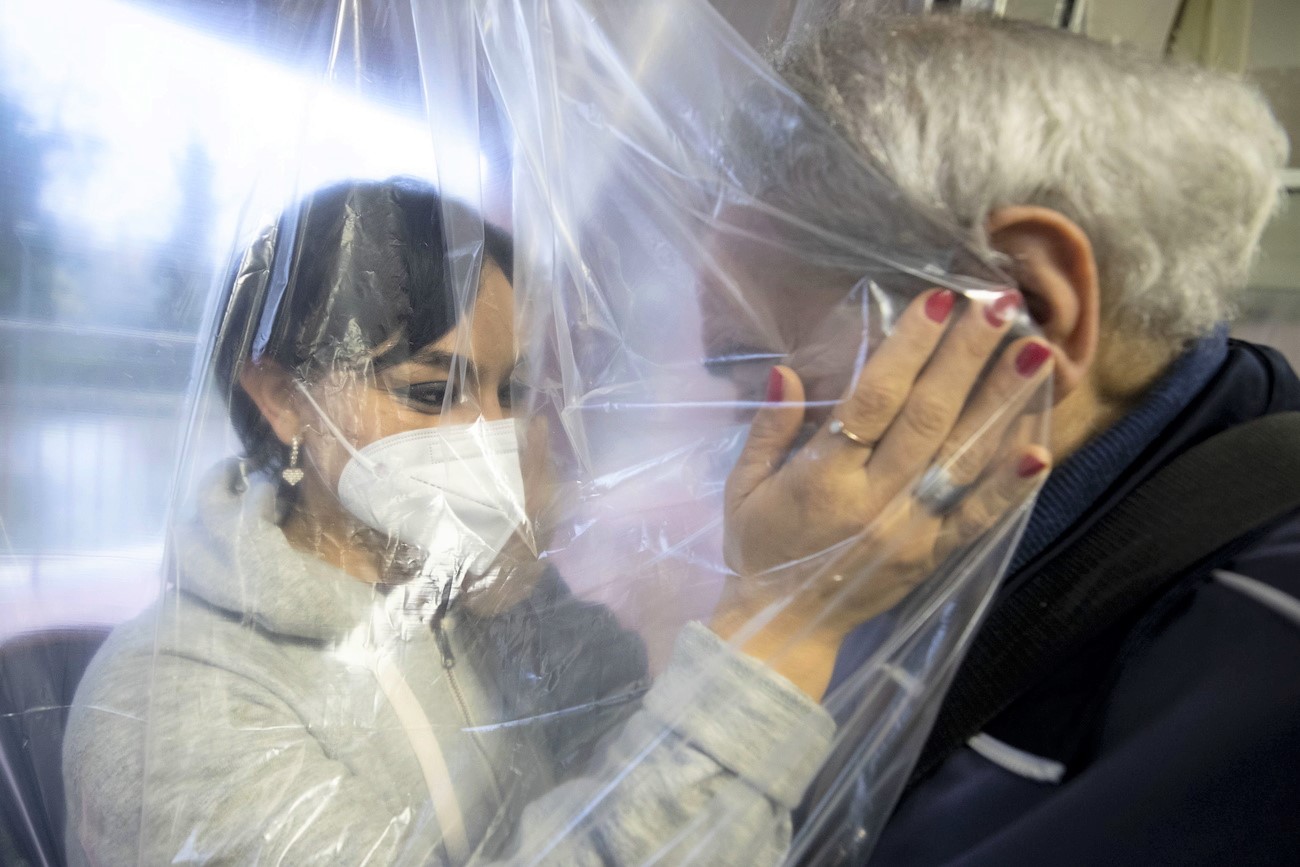
‘Western societies were poorly prepared to cope with the pandemic’

A year after the first case of coronavirus in Switzerland, what have we learned from the ongoing pandemic? SWI swissinfo.ch spoke to Barbara Gallavotti, an Italian biologist and popular science writer currently based in Zurich.
On February 25, 2020, Switzerland joined the list of countries affected by the novel coronavirus. The first person who tested positive for the coronavirus in Switzerland was a resident of the Italian-speaking canton of Ticino who had been to Italy.
SWI swissinfo.ch: A year after the first coronavirus case in Switzerland, how do the measures adopted by the Swiss government measure up to those taken by other Western governments?
Barbara Gallavotti: In the first wave, Switzerland reacted very well. Then there was a period in which things were managed by the cantons rather than by the federal government. That may have been the most troublesome stage, because this kind of emergency really needs a coordinated approach. Once the federal government took the situation back in hand, things started to improve again.
In Switzerland, some brave decisions were taken. For example, in Canton Zurich, primary schools were subjected to very few restrictions. But I found it hard to understand the hesitation about requiring the use of masks. Other countries acted much more decisively on this point.

SWI: One issue where Switzerland received criticism was the opening of the ski resorts.
B.G.: Small towns with few ski-lifts and a largely local client base showed it could be done. The major Swiss resorts, which became the last refuge for skiers from all over Europe with nowhere else to go, were a much more risky proposition, as we saw with the outbreaks of the British virus variant in St. Moritz and Wengen.
SWI: Apart from China, which seems to have rid itself of the disease, most countries do not look even close to taming the virus yet. What went wrong?
B.G.: Countries that succeeded in stopping the virus – like some in Asia – adopted drastic measures that would not have been accepted in the West. We can however say which countries performed badly by denying the danger posed by the virus and the need to take drastic action to deal with it – that would be Brazil, the US, and Sweden.
More
SWI: Which countries acted most effectively, and why?
B.G.: On the continent of Europe everyone did their best in keeping with the customs and cultural attitudes of their population, which determine whether particular approaches are going to be accepted or not.
Unlike Japan and South Korea, where the culture values the wellbeing of society over that of the individual, us Europeans were not prepared to protect our weakest groups and resisted prioritising the wellbeing of society.
SWI: From your point of view as a science journalist and communication expert, were the public properly informed about the virus?
B.G.: In Switzerland it seems to me that there was a balanced, coordinated and pragmatic style of communication. The public were told clearly enough about the problems too, showing that kind of pragmatism which is always the best approach to take in emergencies. I appreciated the fact that care was taken right from the start to point out that it would not be feasible to vaccinate most of the population before summer.
SWI: In many countries, vaccinations are already under way. When are we likely to return to normality with the chance to travel the world again?
B.G.: A good portion of Africa, South-East Asia, central Asian regions and South America will not be fully vaccinated till 2023.
Probably – inevitably, on the world scale – we will need a certificate of immunity to travel. This is not welcome news, but I think we will have to get used to it.

More
Newsletters
SWI: What are the lessons we should be learning from this pandemic? Will we be better prepared to confront the next one?
B.G.: Pandemics have happened before and they will happen again. But apart from AIDS, we forgot how to deal with pandemics, since the last real one was the Spanish Flu in 1918. Many countries lacked a real pandemic plan, and had not put enough effort into monitoring. But we may assume that now, after all that has happened, we will be better prepared to understand the nature of the risks we are exposed to.
A biologist by training, Barbara Gallavotti is a popular science writer and journalist. She has authored science programmes for the Italian and Swiss national broadcasters. She also teaches in a number of master’s programmes in science communication and is a regular contributor to newspapers and magazines. Her work has won her several prizes and awards.

In compliance with the JTI standards
More: SWI swissinfo.ch certified by the Journalism Trust Initiative


















![The four-metre-long painting "Sonntag der Bergbauern" [Sunday of the Mountain Farmers, 1923-24/26] had to be removed by a crane from the German Chancellery in Berlin for the exhibition in Bern.](https://www.swissinfo.ch/content/wp-content/uploads/sites/13/2025/12/01_Pressebild_KirchnerxKirchner.jpg?ver=1ea8acae)










You can find an overview of ongoing debates with our journalists here . Please join us!
If you want to start a conversation about a topic raised in this article or want to report factual errors, email us at english@swissinfo.ch.